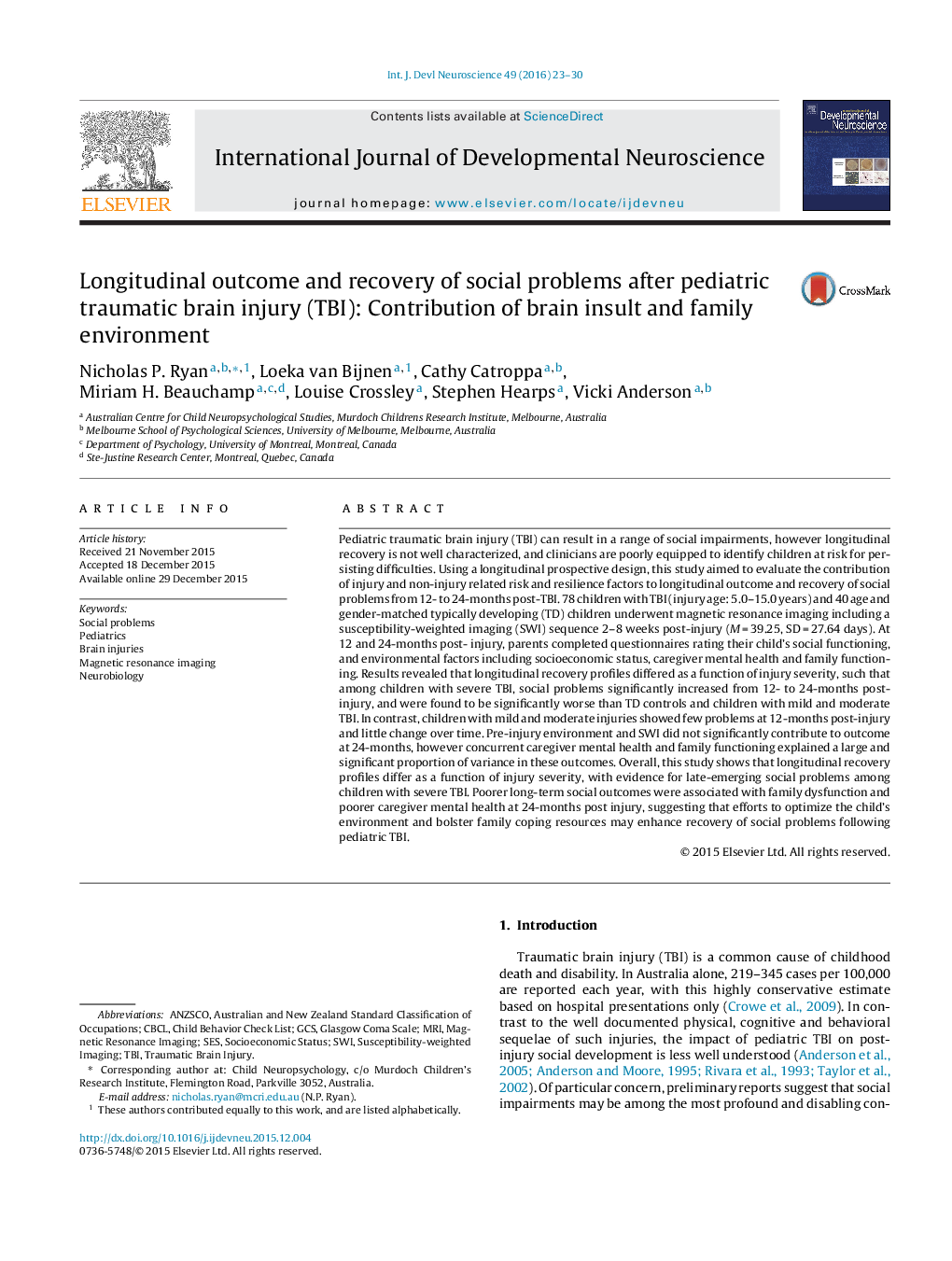| کد مقاله | کد نشریه | سال انتشار | مقاله انگلیسی | نسخه تمام متن |
|---|---|---|---|---|
| 2785672 | 1568381 | 2016 | 8 صفحه PDF | دانلود رایگان |

• We evaluate longitudinal recovery of social problems (SP) post-pediatric TBI.
• Severe TBI was associated with significant increases in SP across time.
• SP were linked to corpus callosum lesions found on susceptibility-weighted imaging.
• Parent mental health and family function were significantly related to long-term SP.
Pediatric traumatic brain injury (TBI) can result in a range of social impairments, however longitudinal recovery is not well characterized, and clinicians are poorly equipped to identify children at risk for persisting difficulties. Using a longitudinal prospective design, this study aimed to evaluate the contribution of injury and non-injury related risk and resilience factors to longitudinal outcome and recovery of social problems from 12- to 24-months post-TBI. 78 children with TBI (injury age: 5.0–15.0 years) and 40 age and gender-matched typically developing (TD) children underwent magnetic resonance imaging including a susceptibility-weighted imaging (SWI) sequence 2–8 weeks post-injury (M = 39.25, SD = 27.64 days). At 12 and 24-months post- injury, parents completed questionnaires rating their child’s social functioning, and environmental factors including socioeconomic status, caregiver mental health and family functioning. Results revealed that longitudinal recovery profiles differed as a function of injury severity, such that among children with severe TBI, social problems significantly increased from 12- to 24-months post-injury, and were found to be significantly worse than TD controls and children with mild and moderate TBI. In contrast, children with mild and moderate injuries showed few problems at 12-months post-injury and little change over time. Pre-injury environment and SWI did not significantly contribute to outcome at 24-months, however concurrent caregiver mental health and family functioning explained a large and significant proportion of variance in these outcomes. Overall, this study shows that longitudinal recovery profiles differ as a function of injury severity, with evidence for late-emerging social problems among children with severe TBI. Poorer long-term social outcomes were associated with family dysfunction and poorer caregiver mental health at 24-months post injury, suggesting that efforts to optimize the child’s environment and bolster family coping resources may enhance recovery of social problems following pediatric TBI.
Journal: International Journal of Developmental Neuroscience - Volume 49, April 2016, Pages 23–30